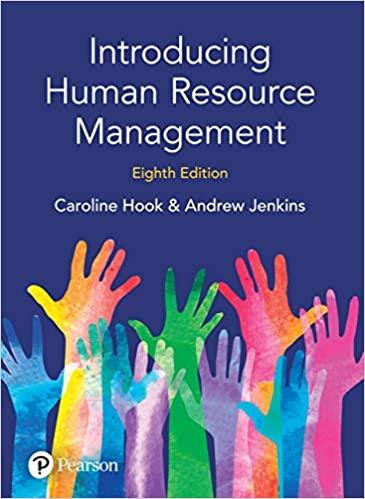A British hospital director told me he was hunting for staff to replace foreign doctors and nurses
Question:
A British hospital director told me he was hunting for staff to replace foreign doctors and nurses leaving because of Brexit. He hadn’t found many qualified Britons queuing to replace them. In fact, he specified: “Not one!”
You could interpret this as yet another cautionary tale about Brexit. In an age when the chief global business cliché is the “war for talent”, the UK is fighting a war against talent. But if I were a Brexiter I’d say: Brexit should be the prompt for Britain finally to start training enough of its own talent.
Obviously, I’m not arguing that every departing foreigner frees up a job for a Briton. Economists dismiss such reasoning as the “lump of labour fallacy”. Rather, I’m saying that if the UK wants to avoid economic decline, it will need to train far more of its own nurses, construction workers, bankers, architects, etc. For a country whose policy has always been not to educate the working class, that would be a reversal of history. It would come too late for the over-45s (the generation that actually voted for Brexit), but it could transform the futures of young Britons. And it’s doable.
The British tradition is to educate each class separately, writes historian David Cannadine in Class in Britain. Even in the 18th century, posh males went to public schools and Oxbridge, whereas the poor were taught almost nothing. The purpose of education then, says Cannadine, “was more to teach people their place than to give them opportunities to advance”. His words apply pretty well to today’s country. The alumni of nine expensive “public”
schools are now 94 times more likely than the average Briton to reach the elite, according to London School of Economics research. (The conservative Daily Telegraph reported the findings under the headline, factually accurate as far as it went, “Boys’ public school dominance over British elite has ‘diminished significantly’ over time”.)
The UK — without any more wars of conscription and with few surviving factories or mines — now struggles to find a use for low-skilled people...........
Questions 1. Do you think that the writer is correct when he says that the UK is ‘fighting a war against talent’? What evidence can you find to support or disprove this statement?
2. Will the shortage of workers from EU countries encourage the Government and employers to be more proactive about developing skills and knowledge in home-grown talent? Is there any evidence to suggest this is happening? What other approaches might they use?
3. In your view, is it ethical ‘to let a poor country like Romania fund a nurse’s education, then underpay her to look after sick Brits?’
4. Do you think that a lack of migrant labour to do unskilled jobs such as fruit picking or potato planting will result in more home-grown workers taking up these jobs? How could these problems be tackled?
Step by Step Answer:

Introducing Human Resource Management
ISBN: 9781292230344
8th Edition
Authors: Caroline Hook, Andrew Jenkins





